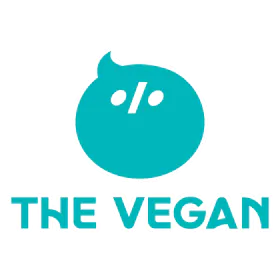
Vegan, Vegetarian, Flexitarian & More: The Ultimate Guide to Today’s Diets
Choosing the right diet can feel confusing with so many options today. From vegetarian and vegan to pescatarian, flexitarian, and fruitarian, each has its own rules, benefits, and quirks. This guide breaks down the differences, helping you make informed choices for health, ethics, or lifestyle.
Choosing the Right Diet for You
The “best” diet depends on your health goals, ethical preferences, and lifestyle. What is right for you, will not be the same for someone else. Whether you are curious about plant-based eating, cutting down on meat, or exploring new flavours, understanding each diet helps you make informed decisions.


🥦 What is a Vegetarian Diet?
Definition: A vegetarian does not eat meat, poultry, or fish, but may consume animal by-products such as dairy, eggs or honey.
Common types:
- Lacto-ovo vegetarian: Eats dairy and eggs (most common type).
- Lacto vegetarian: Eats dairy but not eggs.
- Ovo vegetarian: Eats eggs but not dairy.
Typical foods: Fruit, vegetables, grains, pulses, nuts, seeds, dairy, eggs.
Good to know: some cheeses, such as Parmigiano Reggiano PDO, are traditionally made with animal rennet, an enzyme extracted from the lining of a calf’s stomach used to curdle milk. This means cheeses made with animal rennet are not vegetarian, but vegetarian-friendly alternatives are widely available.
More information: The Vegetarian Society


🌱 What is a Vegan Diet?
Definition: Vegans avoid all animal products, not just meat, but also dairy, eggs, honey, and anything derived from animals (like gelatine or some food colourings).
Typical foods: Fruits, vegetables, grains, pulses, nuts, seeds, and plant-based alternatives (such as soy milk, tofu, tempeh, and vegan cheese).
Ethics: Many vegans also extend their lifestyle beyond food, avoiding leather, wool, and products tested on animals.
More information: The Vegan Society


🐟 What is a Pescatarian Diet?
Definition: A pescatarian avoids meat and poultry but eats fish and seafood, often alongside vegetarian foods like dairy and eggs.
Typical foods: Fish, shellfish, fruit, vegetables, grains, dairy, and eggs.
Why: Often chosen for health reasons or as a middle ground between vegetarian and omnivorous diets.


🌾 What is a Flexitarian Diet
Definition: A flexitarian follows a mostly plant-based diet but occasionally eats meat or fish. It’s a flexible approach rather than a strict rule.
Typical foods: Primarily vegetarian or vegan meals with occasional servings of meat, fish, or animal products.
Why: A flexitarian diet is often chosen for environmental, health, or ethical balance in an effort to reducing meat intake without cutting it out entirely.


🍎 What is a Fruitarian Diet
Definition: A fruitarian diet is a subset of veganism, consisting mainly (or entirely) of raw fruits, sometimes including nuts, seeds, and select vegetables.
Typical foods: Raw fruits, some nuts and seeds; rarely grains or legumes.


Quick Comparison Table
| Diet Type | Eats Meat | Eats Fish | Eats Eggs | Eats Dairy | Avoids All Animal Products |
|---|---|---|---|---|---|
| Vegetarian | ❌ | ❌ | ✅ / ❌ | ✅ / ❌ | ❌ |
| Vegan | ❌ | ❌ | ❌ | ❌ | ✅ |
| Pescatarian | ❌ | ✅ | ✅ | ✅ | ❌ |
| Flexitarian | Sometimes | Sometimes | ✅ | ✅ | ❌ |
| Fruitarian | ❌ | ❌ | ❌ | ❌ | ✅ |
Common-Sense Tips for a Balanced Diet
No matter which diet you choose, keeping it balanced is key for good health. Here are some simple guidelines:
- Eat a variety of foods: Include plenty of fruits, vegetables, whole grains, legumes, nuts, and seeds. Different colours and types provide a wide range of nutrients.
- Protein matters: Ensure you get enough protein from beans, lentils, tofu, tempeh, eggs, dairy, or fish (depending on your diet).
- Healthy fats are essential: Include sources like olive oil, avocado, nuts, seeds, and fatty fish (if you eat it).
- Watch your micronutrients: Vegans and vegetarians should pay attention to vitamin B12, iron, calcium, iodine, and omega-3 intake.
- Hydration is key: Drink plenty of water and limit sugary drinks.
- Moderation, not restriction: Enjoy treats occasionally; a healthy diet is sustainable when it is realistic.
- Plan ahead for extreme diets: Fruitarian or highly restrictive diets require careful planning to avoid deficiencies.
Remember: A balanced diet is not about strict rules, it’s about variety, moderation, and nutrient-rich foods that support your health and lifestyle.



Leave a Reply